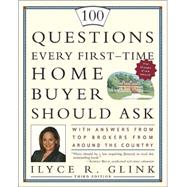
| Preface | xv | ||||
| Introduction | 1 | (12) | |||
|
13 | (38) | |||
|
14 | (7) | |||
|
21 | (1) | |||
|
22 | (3) | |||
|
25 | (4) | |||
|
29 | (9) | |||
|
38 | (3) | |||
|
41 | (4) | |||
|
45 | (6) | |||
|
51 | (51) | |||
|
51 | (13) | |||
|
64 | (2) | |||
|
66 | (4) | |||
|
70 | (4) | |||
|
74 | (4) | |||
|
78 | (2) | |||
|
80 | (2) | |||
|
82 | (2) | |||
|
84 | (3) | |||
|
87 | (2) | |||
|
89 | (2) | |||
|
91 | (5) | |||
|
96 | (2) | |||
|
98 | (4) | |||
|
102 | (16) | |||
|
102 | (3) | |||
|
105 | (2) | |||
|
107 | (3) | |||
|
110 | (5) | |||
|
115 | (3) | |||
|
118 | (19) | |||
|
118 | (12) | |||
|
130 | (5) | |||
|
135 | (2) | |||
|
137 | (22) | |||
|
137 | (4) | |||
|
141 | (2) | |||
|
143 | (6) | |||
|
149 | (2) | |||
|
151 | (1) | |||
|
152 | (2) | |||
|
154 | (2) | |||
|
156 | (3) | |||
|
159 | (46) | |||
|
159 | (8) | |||
|
167 | (1) | |||
|
168 | (2) | |||
|
170 | (4) | |||
|
174 | (3) | |||
|
177 | (2) | |||
|
179 | (4) | |||
|
183 | (2) | |||
|
185 | (2) | |||
|
187 | (7) | |||
|
194 | (7) | |||
|
201 | (2) | |||
|
203 | (2) | |||
|
205 | (6) | |||
|
205 | (1) | |||
|
206 | (2) | |||
|
208 | (1) | |||
|
209 | (2) | |||
|
211 | (55) | |||
|
211 | (6) | |||
|
217 | (2) | |||
|
219 | (2) | |||
|
221 | (6) | |||
|
227 | (5) | |||
|
232 | (2) | |||
|
234 | (4) | |||
|
238 | (5) | |||
|
243 | (2) | |||
|
245 | (3) | |||
|
248 | (2) | |||
|
250 | (1) | |||
|
251 | (1) | |||
|
252 | (1) | |||
|
253 | (5) | |||
|
258 | (5) | |||
|
263 | (3) | |||
|
266 | (63) | |||
|
266 | (4) | |||
|
270 | (3) | |||
|
273 | (6) | |||
|
279 | (1) | |||
|
280 | (7) | |||
|
287 | (3) | |||
|
290 | (5) | |||
|
295 | (4) | |||
|
299 | (1) | |||
|
300 | (5) | |||
|
305 | (7) | |||
|
312 | (3) | |||
|
315 | (4) | |||
|
319 | (1) | |||
|
320 | (9) | |||
|
329 | (41) | |||
|
329 | (8) | |||
|
337 | (4) | |||
|
341 | (5) | |||
|
346 | (4) | |||
|
350 | (4) | |||
|
354 | (10) | |||
|
364 | (6) | |||
|
370 | (17) | |||
|
370 | (2) | |||
|
372 | (2) | |||
|
374 | (4) | |||
|
378 | (1) | |||
|
379 | (2) | |||
|
381 | (6) | |||
|
387 | (10) | |||
|
387 | (2) | |||
|
389 | (5) | |||
|
394 | (3) | |||
| Appendix I: The Top 10 Mistakes First-Time Buyers Make | 397 | (6) | |||
| Appendix II: Five Simple Things You Can Do to Make the Home-Buying Process Easier | 403 | (2) | |||
| Appendix III: Five Mistakes People Make When Buying New Construction | 405 | (4) | |||
| Appendix IV: Contracts | 409 | (26) | |||
| Appendix V: General Resources | 435 | (4) | |||
| Appendix VI: State-by-State Resource Guide | 439 | (12) | |||
| Glossary of Real Estate Terms Every Home Buyer Should Know | 451 | (18) | |||
| Alphabetical Listing of Websites | 469 | (8) | |||
| Acknowledgments | 477 | (2) | |||
| Index | 479 |
The New copy of this book will include any supplemental materials advertised. Please check the title of the book to determine if it should include any access cards, study guides, lab manuals, CDs, etc.
The Used, Rental and eBook copies of this book are not guaranteed to include any supplemental materials. Typically, only the book itself is included. This is true even if the title states it includes any access cards, study guides, lab manuals, CDs, etc.
Excerpted from 100 Questions Every First-Time Home Buyer Should Ask: With Answers from Top Brokers from Around the Country by Ilyce R. Glink
All rights reserved by the original copyright owners. Excerpts are provided for display purposes only and may not be reproduced, reprinted or distributed without the written permission of the publisher.